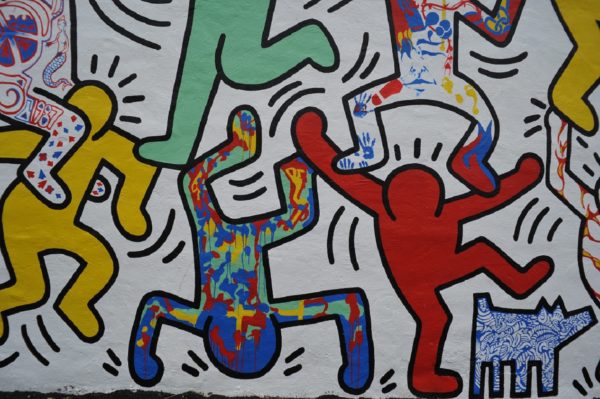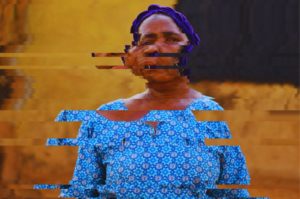
FIRST, YOU NEED to have a girl. Call her Chimkasi. It means God is Great, but only a few people will bother remembering that. People like names whose meanings they don’t remember. They would go, “Chimkasi? That’s Igbo, right? Oh I love Igbo names! What does it mean?” But only twenty percent will remember what it means the next time they are asked.
Give Chimkasi a fair skin, the colour of ripe pawpaw. Fairness is a prerequisite for marriage today, and so must not be ignored if you want to create a memorable bride. Chimkasi must have perfect C-cup breasts that, when freed from the greedy clasp of a brassiere, would look like twin sisters. And then a slender neck that would make a bottle of groundnuts jealous. Now, her face: high cheekbones, fish-shaped eyes, full lips, and an almost-but-not perfect nose so she isn’t too perfect. Sometimes, perfection bores people. But don’t forget that Chimkasi must have faultless eyebrows or know how to shave her God-given ones and draw perfectly arched eyebrows that, if she existed in real life, could be posted on Instagram, captioned “Eyebrows on fleek!” and gather sixty-nine hearts and two comments, one of them saying, “Who did your facebeat, girl?!”, the other saying, “Click here to get 15k Instagram followers.” You can decide to give her natural hair if you want. But make sure it is the curly, wooly and charcoal black type that can frame her face and highlight her features well. Add well-rounded, stretch mark-free buttocks, and the girl is ready.
Then, you need to have a guy. Call him Dele. Just Dele. It doesn’t matter if a guy’s name is exotic or not. What matters is that he can put food on the table. Can names, exotic or not, do that?
So make Dele tall. And dark. Very dark so that when he meets Chimkasi later, his dark skin can be a sharp contrast to her pawpaw-fair skin. Below Dele’s waist, add a big penis. This prized possession will come in handy before the story ends. Now come back to his cheeks and give him a beard. A gloriously dark and curly beard that will frame his kissable pink lips. Should your writer friends (or anyone else) disagree with the idea of the beard, tell them that it’s a thing of utmost necessity. If Dele appears as a beardless young man, then he will be a disappointment to the male readers who will read your love story. They might stop halfway, asking what Chimkasi will comb her fingers through in moments when she and Dele lie together in solitude. And who knows, they could be part of Instagram’s #BeardGang. How else should they recognize themselves in your characters?
But if you say all of these and your writer friends still say it’s not enough reason to give Dele a beard, then you should let them be. Don’t argue with them, but let it be in your mind that in writing (and life generally), not everyone will support your vision.
Give Dele an interesting backstory so that your male readers will wish they were him. Something like this: Dele is a twenty-six year old summa cum laude graduate of Business Administration from Eastern Connecticut State University, America, whose ex-politician father still controls some buttons in the remote control of the Nigerian economy, and whose moneyed mother loves brown powder, Lagos parties and appears regularly on the pages of City People magazine. He was conceived in Lagos, on a large bed with silk coverlets in a large house in Victoria Island, and he was born in America, in a Long Island hospital where the doctor had silver hair and green eyes. No, change that. Blue eyes are more adorable. But if you don’t want this, you can rework it. Maybe you make Dele a Yoruba Demon who, really, is just too handsome for his own good, and because of this is often misunderstood, since he has not broken that many hearts. A hunk who—apart from living a fairly comfortable life on the Island—earns more than 200k in salary. That is totally up to you. Now though, go with the first backstory. Everybody loves a love story with a hint of America. Deny it if you may, but you do too.
So, if Dele’s life is a book, then the prologue is spent in Nigeria, under the watchful eyes and capable hands of a maid with big buttocks, saggy breasts, and either relaxer-damaged hair or manageable, but still noticeable, body odour. Call her Ekaete and, as you already know, she must not know how to speak proper English, only pidgin. If you are not bound by a word count, you can trace Dele’s sexual history back to her and write that she used to do things to him on those days when she bathed him as a child. This will boost Dele’s sexual confidence as a teenager in America, chasing white girls in mini-skirts and telling them how their maid in Nigeria let him have a taste of it. But for now, let’s assume that you are restricted by word count.
The next few chapters of Dele’s life are spent in a school in NY where students with accents as melodious as music call their teachers Miss Lily and Mr. Harris, not Uncle Hyginus and Aunty Kafila. Give Dele a life so steeped in complacence that coming home to Nigeria where he eventually meets Chimkasi and falls in love with her feels like visiting uncles in the village, uncles who make you play with children you don’t want to play with, and who give you eba and ogbono for breakfast, though you would rather have corn flakes. By the way, Dele must never know how to speak Yoruba. If, in any part of the story, he has to, write that it is baptized in a heavy American accent that makes him pronounce e k’aaro as acre-row.
So, how do Dele and Chimkasi meet?
In a posh place, like The Palms in Lekki, or any good restaurant, through a very small thing, say, jollof rice. Dele, our fine I-Just-Got-Back, is at the mall, about to buy food, and is confused about what to have—coconut rice or fried rice or jollof rice? A grave abomination, because who sees Nigerian jollof at the bus stop and keeps it waiting? Put Chimkasi there, in a low-cut black dress that hugs her body tight like a possessive lover. Her curly natural hair (if that is what you have chosen) must be done up so it exposes her delicate and slender would-you-like-to-kiss-me neck. She wants to buy food, too, and Dele’s indecisiveness is getting to her. So she says, in a voice as clear as day but as soft as tissue, “Why don’t you just take Jollof rice?”
Dele turns, and is mesmerized. He sees her face in its entirety and he wants to fall at her feet. No, cross that out. Guys shouldn’t fall a girl’s feet. What effeminacy is that? Girls should be the ones to fall. Leave gender equality aside for a moment. So, Dele sees her face in its entirety and he wants to grab her and kiss her lips, her soft, come-and-take-a-bite-I’m-juicy, beckoning, fresh watermelon lips. But all that is in his mind, of course. On the outside, he smiles and says, “Oh, thank you.” Be sure to make his accent swim through both words. Make it evident, so that Chimkasi will smile her don’t-be-deceived-by-my-fine-face-I’m-wife-material-two-million-yards-and-I-pray-two-hours-minimum-everyday smile.
When they walk out of the glossy mall, let Chimkasi dawdle in her walk to the car. An elegant, I-am-not-in-a-hurry-to-leave-if-you-haven’t-taken-my-number dawdle. Because Dele is now the love-struck Americanah bobo, who has just fallen in love both with jollof rice and the recommender of said rice. Let him say:
“Hello, ‘scuse me?”
And Chimkasi, though she and Dele are the only ones in that area of the parking lot, would say:
“Me?”
“Yes, you. Jus’ a minute.”
Chimkasi stops.
“I’m Dele Ige.” Don’t forget: deep baritone. American accent.
“Chimkasi George.” Voice so sweet you can put it in a cup of tea.
“Thank you for helping out. I was confused for a while back there. But the rice was so good.”
“Oh, it definitely is.” A smile. “I can show you other kinds of cool Nigerian foods, if you don’t mind. You don’t strike me as too familiar with them.”
“You noticed?”
“Oh come on, you kept everyone on the queue for so long. People who are familiar don’t do that. They just buy.”
Tri-syllabic American laughter: Ha-ha-ha!
“I’ll keep that in mind next time. And I don’t mind being shown other kinds of cool Nigerian foods, by the way. I’d really love and appreciate it. You stay on the Island, don’t you?”
“Yes, I do. Eleganza.”
“Cool. Can I get your number?”
Even though it is what Chikamsi has been waiting for all day, she should not say a too-forward yes. Nobody likes an overeager lady. Remember what your mother tells your sister everyday: “If you like a guy, you must do it inside. Only wayward girls will carry their life’s emotions on their face like powder.” So, let Chimkasi say, “Hmm…,” and pucker her lips as though contemplating it, then shrug before saying, “Okay.”
This is what happens afterwards:
DAY 1: Dele calls Chimkasi. They meet at a fancy restaurant in Lekki, where large paintings hang on the white walls, and meals of thirty thousand naira have incomprehensible names like Rice Mozzarella Cocktail Parfait but consist of just a few spoons of white rice, garnished with thin slices of fried plantain and red pepper cut to resemble bridal confetti, fish boiled with lime and chicken breast in watery broth. But they are not bothered. Remember, Dele is “rich folk.” And again, your story is set in Lekki, so it makes sense.
DAY 2: Another call. Plenty laughter. Exchange of autobiographies, modestly done.
Chimkasi: I went to school in the U.K., but my Dad made me come back to get a feel of my roots.
Dele: I’ve kinda been in America all my life. Just got back to, how do I put it, discover home too?
More laughter. Let them open themselves up, like tins of sardines.
DAY 4: Another hangout. Dele’s parents’ grand Victoria Island house.
Introduction to photos:
“That’s my Grandmother.”
A “hmm.”
“My parents. They are in Haiti on vacation now.”
A breathy “wow.”
“Aha! The original Ige— my Grandfather.”
Laughter. Chimkasi goes into the kitchen to cook for Dele, because according to her, “How on earth can you say you’ve not tasted egusi and call yourself a Nigerian? Same way you tried to belittle the fame of jollof rice. Nigeria should just hurry up and disown you, biko.” But you know it is actually because cooking is a validation of how many yards of quality wife material she is. So, when you write this part, write a little willingness into her voice. But don’t make it conspicuous. Just subtle enough to hint that Chimkasi’s wife material is as thick as a duvet, embellished with shine-shine and can sew plenty clothes, bedsheets and curtains included, and still remain so much, enough to floor a mansion, if clothes could replace carpets.
DAY 5: The egusi trick should work. Dele should want more egusi in his life. (Remember the advice your mother gives your sister, “The way to a man’s heart is through his stomach….” Remember, too, how she shouts at her to come join her in the kitchen and leave TV for the boys. Would she go and watch TV in her husband’s house?)
DAY 8: Chimkasi cooks him okro and ogbono with ponmo kika that gives way to squishy sweetness with one bite, and shrimps and fresh fish, with perfectly rounded balls of yellow garri. Dele wants to go crazy. After eating, Chimkasi sits by his side and they watch Rihanna on the TV, crying in a tub and begging a curly-haired man to stay: I want you to stay….
Because there is a sparkling, like electricity, in the air they are breathing, Dele leans in and kisses Chimkasi. Lightly at first, then deeper, their lips fitting together like pieces of a jigsaw puzzle. Inside them, a candle of desire is lit.
DAY 10: Sex. Nothing else will be more apt. Here, Dele must put his big penis to good use. Write that he is so proud of it, he wields it like a trophy, or like a magic wand, and Chimkasi is so enamored, she can’t bear to let it go. That dark piece of meaty goodness.
Sex
—in the tub.
—on the couch.
—on the floor.
—against the wall.
So much sex in one day, sex so good, it makes Chimkasi sob.
“Who’z your daddy, huh?”
“You baby, you!”
DELE AND CHIMKASI visit everywhere in Lagos:
Lekki Waterside Hotel, to see the Lekki-Ikoyi link bridge light up at night.
A Karaoke Bar. Create a karaoke bar—this is necessary for this story. But if you don’t want to, use a known Karaoke bar and put your characters in it. For this, you can use Shaunz Karaoke Bar in Lekki. When they visit the karaoke bar, they sing Fun and Janelle Monae’s “We Are Young” under bluish lights and receive scattered applause afterwards.
Freedom Park, where they watch a poetry recital, and even though they do not understand the poet’s words or see the reason for his endless writhing, they clap and hoot when it’s over, and take photos captioned: #GoodPoetry.
Lekki Conservation Centre.
The Jazz Hole.
Etc.
Let them have sex in between this Lagos-trotting, and stretch their love to a month first, then two. By the third week of the fourth month, Dele will know all the foods in Nigeria. Well, almost all. And of course, he will like jollof rice, egusi, and okro soup, in that order, because they all signify special things.
And so, because Dele can now attest to the quality of Chimkasi’s wife material, and because he knows she can pray open the doors of heaven, he proposes. It has to be at the Karaoke Bar, the one you are borrowing for this purpose, so you can write that the sultry lady with the nose piercing and sing-song voice gave them a shoutout over the microphone, that someone made a video of them that ended up on Facebook, Instagram, Nairaland, Bella Naija and Linda Ikeji’s Blog. So that ladies can thicken their wife-materialness. So that people can begin to plan romantic trips to Shaunz Bar with their boyfriends and girlfriends. A love story is not a love story if it doesn’t inspire others. Keep this in mind.
On the night Dele proposes, this is what should happen: They would sing Bruno Mars’s “Just The Way You Are” and “Marry You.” And as the people in the bar applaud loudly, Dele would go down on one knee. The whole bar would scream. And this is when Chimkasi wears her practiced I’m-pretending-as-if-I-don’t-know-what’s-happening-here look. Dele will pull out a ring from his pocket and say, “Chimkasi, will you marry me?” The bar will scream again. Let the ladies say, “Oh my gosh! How sweet,” and let the guys hold their girlfriends as though to say, “Soon baby, soon.”
Chimkasi should begin to cry by now. Girls should cry when they are proposed to. It’s a way of showing gratitude, of saying: Thank you for rescuing me from dying single and bitter, and from “go an’ marry” talks. If not for you, my life would amount to nothing. She can faint too, but don’t use that idea. Somebody was photographed in a faint pose on Facebook last month. Make your own love story unique. You can write that, as soon as he slips the ring on her finger, she rips off her dress and runs around the bar screaming: “Yes, bitches! Yesss!” Because you know how the joy of being finally proposed to is enough to drive a person into maddening glee if not quickly handled.
The lady should come on stage to say, “Make some noooise for the latest couple in town!” and the DJ should play Korede Bello’s “One and Only” and “God Win,” Kiss Daniel’s “Mama,” and Tiwa Savage’s “Eminado.” And by the following day, the manager of the bar should upload the proposal video on YouTube and get one hundred and twenty views, three dislikes and sixteen likes. Leave the dislikes alone. It adds originality to your story. Some people, as you already know, are bad belle.
Chimkasi and Dele should get married in an air-conditioned event hall with floral wallpapered walls and an array of balloons and plastic flowers. At a church in Lekki. You can use the Catholic Church of Divine Mercy. The neat garage, stained glass windows and murals of sparkly-eyed Jesus and dark-skinned children with cornrows will make good backgrounds for Instagram photos. On the day they get married, write about Chimkasi’s bridal jitteriness and Dele’s masculine placidity. Also, write about Chimkasi’s joy when she finds out that their pre-wedding photos made it to Bella Naija Weddings section and got two thousand, seven hundred and fourteen Instagram hearts.
If you know what is good for you, dear writer, do not mention Nigerian tailors anywhere in this story. Because, some of them are architects of chaos (you ask them to make you letter M, they do W, and when you complain, they ask you to turn W upside down and still get M). Chances are, there will be a reader who is still hurting from what a tailor did to her (turning her mermaid-style dress into crocodile-shaped and still arguing that both are aquatic animals). So your mentioning that a Nigerian tailor made a perfect wedding dress for Chikamsi will simply tell the reader two things:
One—that you don’t know what you are talking about.
Two—that you are actually a tailor who has decided to write a love story out of idleness.
And again, writing that a Nigerian tailor ruined Chimkasi’s dress will make it seem like you have a thing against Made In Nigeria. And believe me, you don’t want that.
Instead, write that Chimkasi’s dress is an imitation of a classic Vera Wang or Vivienne Westwood design and was imported from a high-end store in London. Then describe this dress as one with a multi-layered gauze flare and a form-fitting, corset-like bodice made of lace as delicate as cobwebs. Describe the long train, too, and don’t forget to include the colour: unblemished white, like salt. Write of the desire that engulfs Dele when he sees her walking down the aisle, and how he wants to cry because he knows he has found a good bride. It’s okay to make the guy cry now. But don’t overdo it so your male readers will not say, “Tah! If I hear say I cry when my wife dey waka for wedding day. Na today she been dey waka ni?”
You can write about Dele’s Alexander Wang suit too, but it is not really necessary. But if you choose to, write about the dark blue hue of the suit, the seductive flare of his bow tie, and the perfect fit of his trousers. Don’t write about his wristwatch right away; start with its glint when it catches the sun. Then describe the ornate silver hands and the bed of tiny diamonds. Show, don’t tell. Always keep that in mind.
You can start wrapping up your story now. Chimkasi and Dele will live happily ever after, yes, but don’t use those exact words. It has a Disney fairytale ring to it, and will ruin the picture-perfect reality you are trying to achieve in your story.
By the way, if you’re wondering, Dele will eventually cheat on Chimkasi. Are men not trash scum flawed after all? I suggest you don’t put it this way though, so you don’t jeopardize your writing career. Instead, write it with empathy, with the understanding that men are wired to cheat. Which means that you must present it knowledgeably, like a person who knows that in the left hand side of every man’s brain, there’s a small red button that goes off every fifteen minutes: BEEP! You must cheat. BEEP! Have you cheated? BEEP! Don’t forget to cheat!
Go further by describing the lady he cheated on Chimkasi with, so you can balance things out and so your readers can hate her for triggering a flawed man. Describe her in the manner fit for describing mistresses: Face so made-up she could pass for Jezebel’s mentee. Never-ending legs, only fit for tempting innocent men. Long, slender arms that can encircle nothing else but a man’s torso. And red-lipsticked lips that are perfect for calling out the name of another woman’s husband in the throes of sinful ecstasy. You must leave her name out. Call her Slay Queen instead. Or Side Chick. Or Becky with the Brown Hair.
Chimkasi must not be spared too, by the way. Blame her. Blame her. Knowing that men are like London Bridge, always falling down, falling down, why didn’t she, as a wise lady, do all that was possible to catch him from falling? What happened to her prayer life? Why did she let her wife material shrink?
But you see, all of these will be too much to contain in a short story, and too risky to pull off, so I suggest you don’t write it. Let your readers bring to the story the continuation they desire for themselves. What you need to bother yourself about is the ending sentence of your love story. You can write:
Droplets of rain fell on them, as they pressed their faces together and kissed. They knew, in their hearts, that this rain was a sign from God that they would live happy lives.
Or you can spice it up a bit. Take a cue from all the Mills and Boon paperbacks you spent your teenage years reading. Perhaps this:
And when he thrust into her, a tear slid down her cheek. He kissed it away, and she held onto him, as though his body was carved out of diamonds.
And if you wish, you can end it at the wedding part, as Chimkasi is walking down the aisle littered with confetti. But whichever way you choose to end it, see to it that it is an emotionally significant one, an ending that will make your readers sigh and murmur, Awww.
About the Writer:
 OLAKUNLE OLOGUNRO is a student of English in the University of Ilorin, Nigeria. His short stories have been published online, in LitroUK, Praxis Magazine, and Storried, and in print anthologies such as the Gerald Kraak Award’s Pride and Prejudice and Queer Africa II.
OLAKUNLE OLOGUNRO is a student of English in the University of Ilorin, Nigeria. His short stories have been published online, in LitroUK, Praxis Magazine, and Storried, and in print anthologies such as the Gerald Kraak Award’s Pride and Prejudice and Queer Africa II.









Irenitemi February 17, 2020 10:52
9ice 1 and great masterpiece